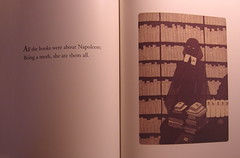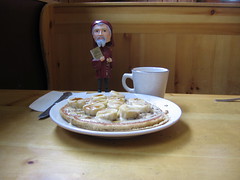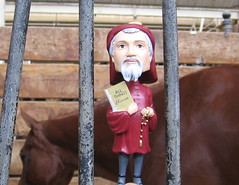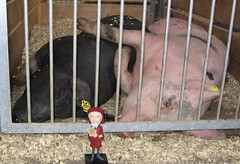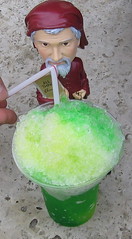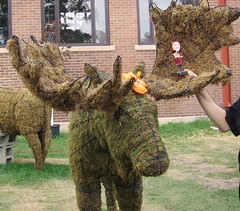Gifts
I very much enjoyed Emerson's essay Gifts, probably because I am in agreement with him on the matter. Emerson is bothered by what is given and the manner in which it is given. Plus, Emerson also admits to having difficulty choosing gifts (gotta like him for admitting that). There are many problems when giving a gift beginning with why. Are you giving a gift in order to put someone in your debt? Are you giving a gift because you want to prove something? Or are you expecting something in return? If so, you are not giving a gift. "The gift, to be true, must be a flowing of the giver unto me, correspondent to my flowing unto him." Expecting gratitude for a gift "is mean, and is continually punished by the total insensibility of the obliged person." Plus, no one likes to give a gift to pay a debt, but everyone loves to give gifts out of a sense of generosity. Deciding what to give is never easy. Emerson believes flowers and fruit are always appropriate. Flowers are good because "they are a proud assertion that a ray of beauty outvalues all the utilities of the world." And fruit is good because "they are the flower of commodities, and admit of fantastic values being attached to them." If the person you are gifting has a need, then things are easy. However, if there is no need and flowers or fruit are not an option, then one should choose a gift that "is a portion of thyself." Emerson insists, "thou must bleed for me." While that sounds ominous, he simply means that if you are a poet, give a poem; if you are a farmer, give corn; if you are a sailor, then give coral or shells. Give a gift that speaks of you. Emerson rightly remarks, "it is a cold and lifeless business when you go to the shops to buy me something which does not represent your life and talent, but a goldsmith's." Personally, I always love a gift that represents the giver's life or talent, whether it be a crayon drawing from a six-year-old, a quilt from a quilter friend, or a beautiful photograph a taken on vacation. These are the kinds of gifts I cherish most. Do I always give gifts like that? Regretfully, no. I try though. Perhaps part of the difficulty of gift-giving these days is time and the evils of expectations. If I need ten gifts to give in December, where will I find the time to knit ten scarves? And do I dare give as a gift a beautiful rock I picked up in the woods while hiking that made me think of a particular person to that person? Especially knowing that the other person is going to give me a gift of higher monetary value? We expect a gift of equal value to the one we give. One can argue that the rock is more valuable than the gift certificate to Olive Garden because of the meaning behind it, and I agree. But how does one change another's concept of value in a world where value is so often connected to money? Of course hospitality and generosity are always good gifts, but these "services" have no value, says Emerson, they are "only likeness." To try and join oneself to others by services is nothing but "an intellectual trick." Those to whom you give will "eat your service like apples, and leave you out." The solution? "Love them, and they will feel you and delight in you all the time." Love, of course, is the best gift. Love is "the genius and god of gifts." This doesn't mean, however, that giving something other than love is bad, far from it:
There are persons from whom we always expect fairy-tokens; let us not cease to expect them. This is prerogative, and not to be limited by our municipal rules. For the rest, I like to see that we cannot be bought and sold.Next week's Emerson: Nature

